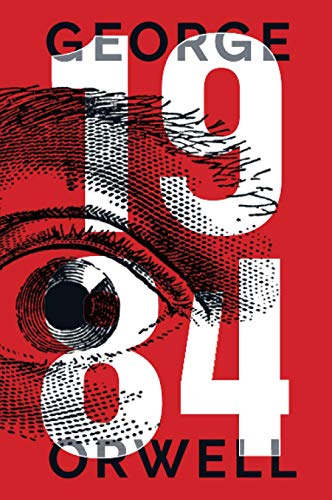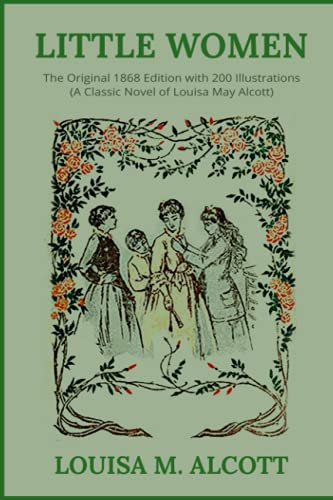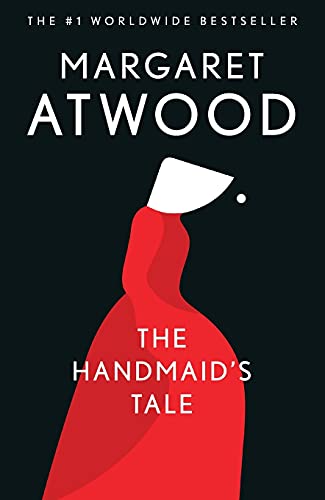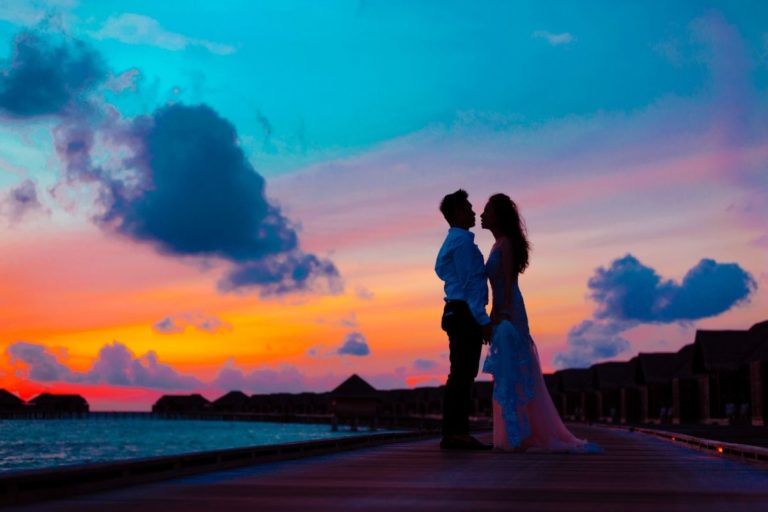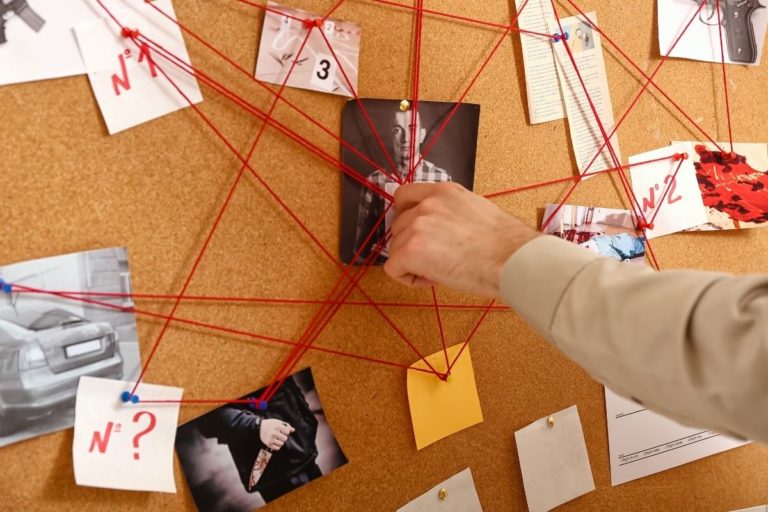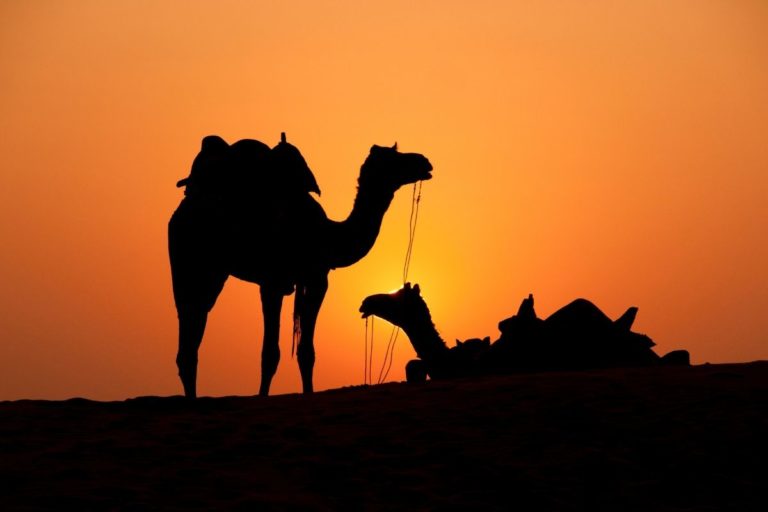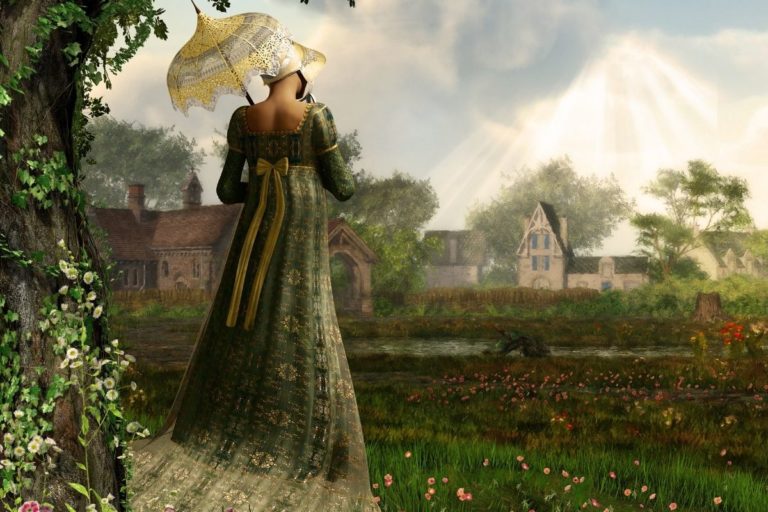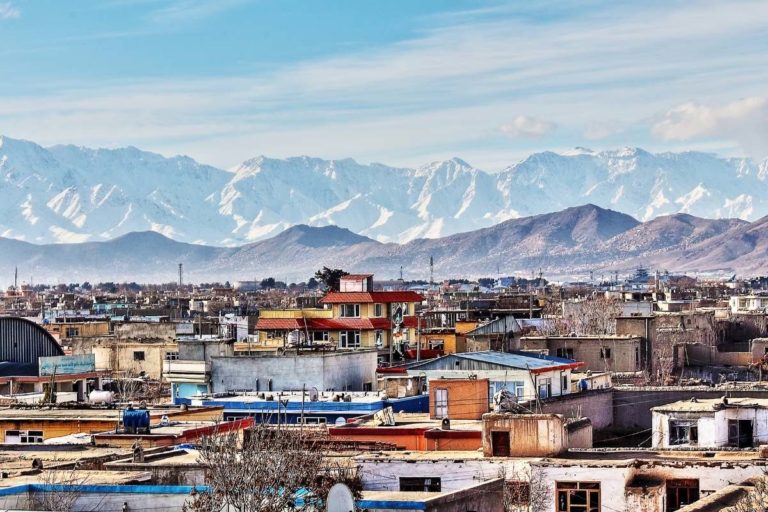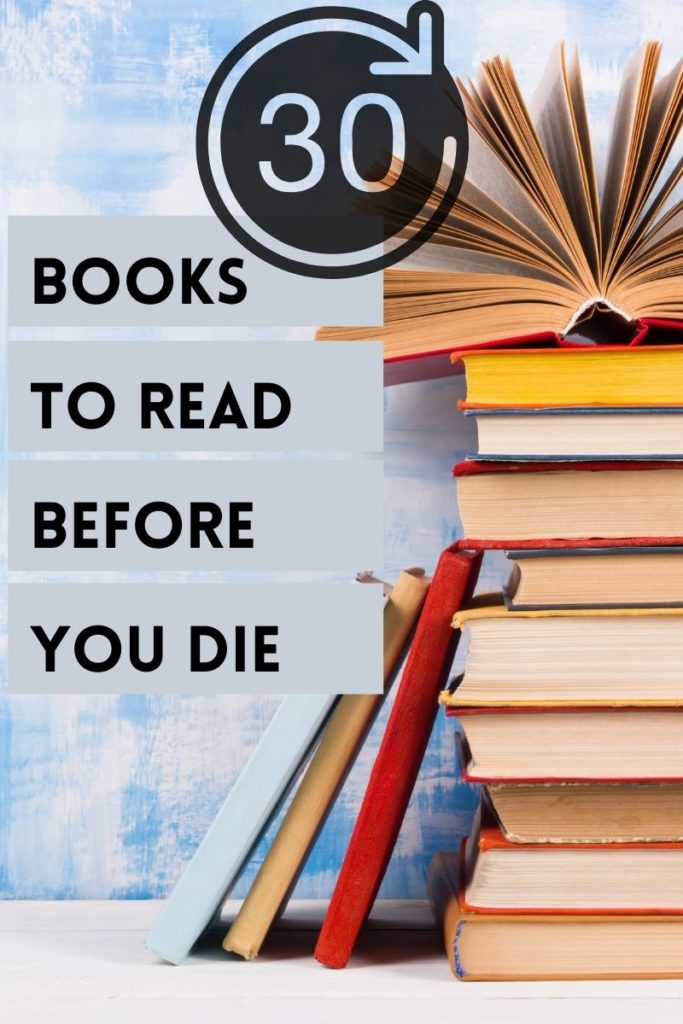
Among the best books of all time, we have selected 30 books to read before you die. Classics, Dystopia, Graphic Novels, Romance, Fantasy and more, these are the fundamental books you should have in your bookshelf.
Disclosure: Some of our articles contain affiliate links (as an Amazon affiliate I earn from qualifying purchases).
30 Books to Read Before You Die

1. Lord of the Flies
by William Golding (1954)
Prices pulled from the Amazon Product Advertising API on:
Product prices and availability are accurate as of the date/time indicated and are subject to change. Any price and availability information displayed on [relevant Amazon Site(s), as applicable] at the time of purchase will apply to the purchase of this product.
After a plane crash, a group of children arrives on an island where they must survive without the help of adults.
When Ralph is chosen to be the leader, he imposes a series of rules, but as the days go by, anarchy and their most animal instincts will prevail.
The island is just another character as if it had a life of its own as if it wanted to teach the children something.
There is a criticism not only of society and how it is formed but also of the essence of the human being. We can witness the weak border that separates us from the wild, with the monster that lives in each one.
2. Wuthering Heights
by Emily Brontë (1947)
Prices pulled from the Amazon Product Advertising API on:
Product prices and availability are accurate as of the date/time indicated and are subject to change. Any price and availability information displayed on [relevant Amazon Site(s), as applicable] at the time of purchase will apply to the purchase of this product.
This novel by Emily Brontë is one of the most representative love stories of English romanticism. The characters are complex, credible, with their flaws and their virtues, and they all have a hidden side that the reader ends up discovering.
Their different personalities fight and debate each other and end up fighting in the name of love. Revenge, hatred, disappointment, and passion are protagonists in this classic story of English literature.
3. Jane Eyre
by Charlotte Brontë (1847)
Prices pulled from the Amazon Product Advertising API on:
Product prices and availability are accurate as of the date/time indicated and are subject to change. Any price and availability information displayed on [relevant Amazon Site(s), as applicable] at the time of purchase will apply to the purchase of this product.
It is a novel that belongs to the Bildungsroman genre where you can appreciate Jane’s growth and her transition from childhood to adulthood.
The characters are full of nuances and the story combines mystery and romance: the mystery is represented by a subplot in which the protagonist must discover what happens in Thornfield’s attic; and romance overflows the pages and crosses the ages to reach the reader directly.
4. Brave New World
By Aldous Huxley, 1932
Prices pulled from the Amazon Product Advertising API on:
Product prices and availability are accurate as of the date/time indicated and are subject to change. Any price and availability information displayed on [relevant Amazon Site(s), as applicable] at the time of purchase will apply to the purchase of this product.
Aldous Huxley’s novel is along with 1984 one of the great classics of the dystopian genre. The story takes place in the year 2540 and portrays a society in which all human beings are born in a planned way and belong to castes that pigeonhole them forever.
The danger is not the lack of information, but its excess and its banality. In this way, the truth is lost in a sea of ignorance, and the question is whether you prefer to be happy or to know the truth and be free.
5. Rebecca
by Daphne Du Maurier (1938)
Prices pulled from the Amazon Product Advertising API on:
Product prices and availability are accurate as of the date/time indicated and are subject to change. Any price and availability information displayed on [relevant Amazon Site(s), as applicable] at the time of purchase will apply to the purchase of this product.
The English aristocrat Maxim De Winter meets a humble young woman in Monte Carlo (whose name you will never know) and soon they will become husband and wife.
But not everything will be rosy for the new Mrs. De Winter, as she will feel threatened by Rebecca, the dead ex-wife of her husband.
Although she is dead, Rebecca’s memory is still very much alive in the house, threatening the happiness of the protagonist. Will she ever be able to fill the shoes of the wonderful Rebecca? Can Maxim love her more than Rebecca’s ghost?
6. 1984
Prices pulled from the Amazon Product Advertising API on:
Product prices and availability are accurate as of the date/time indicated and are subject to change. Any price and availability information displayed on [relevant Amazon Site(s), as applicable] at the time of purchase will apply to the purchase of this product.
Check Also
9 Essential Dystopias You Must Read If You Liked 1984
7. Pride and Prejudice
Prices pulled from the Amazon Product Advertising API on:
Product prices and availability are accurate as of the date/time indicated and are subject to change. Any price and availability information displayed on [relevant Amazon Site(s), as applicable] at the time of purchase will apply to the purchase of this product.
Check Also
10 Books Like Pride and Prejudice If You Love Jane Austen’s Novels
8. Love in the Time of Cholera
by Gabriel Garcia Marquez, 1985
Prices pulled from the Amazon Product Advertising API on:
Product prices and availability are accurate as of the date/time indicated and are subject to change. Any price and availability information displayed on [relevant Amazon Site(s), as applicable] at the time of purchase will apply to the purchase of this product.
The unreachable lyricism of imaginative Marquez conceives one of the most formidable metaphor of enduring love: a devastating epidemic that annihilates all will, senses and body resistance.
Unwavering Florentino Ariza suffers the fate of an untamable unrequited love for fifty-one years, nine months, and four days on the vivid setting of a lively port city variously identified with Baraquilla or Cartagena. A vibrant kaleidoscope of colours, smells and sounds brings to life the very taste of a crumbling imperial Colombia, while exploring unexpected notions of love, from its purest forms to its most extreme expressions.
9. Little Women
by Louisa May Alcott (1869)
Prices pulled from the Amazon Product Advertising API on:
Product prices and availability are accurate as of the date/time indicated and are subject to change. Any price and availability information displayed on [relevant Amazon Site(s), as applicable] at the time of purchase will apply to the purchase of this product.
The story focuses on the lives of four teenage sisters Meg (Margaret), Jo (Josephine), Beth (Elizabeth) and Amy, daughters of the March marriage, whose father is in the Civil War and whose mother must educate her daughters and support the family in a difficult economic situation.
Each chapter is a short story of the protagonists, and when taken together they form a representation of life, the development of the personalities, and the growth of these little women.
10. A Wizard of Earthsea
by Ursula K. Le Guin (1968)
Prices pulled from the Amazon Product Advertising API on:
Product prices and availability are accurate as of the date/time indicated and are subject to change. Any price and availability information displayed on [relevant Amazon Site(s), as applicable] at the time of purchase will apply to the purchase of this product.
The protagonist of the book is Ged, one of the great magicians of all time, dragonlord and Archmage.
But every great magician had to be an apprentice at some point, and learn how to control his impulses and emotions.
That is why in order to meet Ged, we must go back to the times when he still did not know his real name when no one knew that he had a natural magical talent.
Check Also
8 Books Series Like Game Of Thrones You Must Check Out
11. No one writes to the colonel
by García Márquez
Prices pulled from the Amazon Product Advertising API on:
Product prices and availability are accurate as of the date/time indicated and are subject to change. Any price and availability information displayed on [relevant Amazon Site(s), as applicable] at the time of purchase will apply to the purchase of this product.
No one writes to the colonel is a short novel by Gabriel García Márquez that tells the story of a colonel who has been waiting for fifteen years for his pension for the services rendered to his country.
It is a narrative that reflects on hope and resignation, on the consequences of maintaining one’s principles and personal dignity in a corrupt society. This 1996 novel tells of many problems that exist in most of South America up to this day.
Check Also
4 Best books about South America
12. Memoirs of a Geisha
by Arthur Golden, 1997
Prices pulled from the Amazon Product Advertising API on:
Product prices and availability are accurate as of the date/time indicated and are subject to change. Any price and availability information displayed on [relevant Amazon Site(s), as applicable] at the time of purchase will apply to the purchase of this product.
The story opens a window into the hermetic and mysterious world of Kyoto geisha, where sensuality and beauty go hand in hand with degradation and submission.
Shortly before her death, Sayuri recounted to a friend her troubled and fascinating life: from a miserable childhood, she became one of the most famous geisha in interwar Japan, a country where feudal and ancient echoes still resonated, and where ancestral traditions began to coexist with the ways of the modern world.
13. The Handmaid’s Tale
by Margaret Atwood, 1985
Prices pulled from the Amazon Product Advertising API on:
Product prices and availability are accurate as of the date/time indicated and are subject to change. Any price and availability information displayed on [relevant Amazon Site(s), as applicable] at the time of purchase will apply to the purchase of this product.
Offred lives in the Republic of Gilead where a puritanical dictatorship of biblical inspiration reigns.
Like all women, she has lost all her rights and her mission in society is reduced to procreating.
Although the novel is framed within the dystopian genre of science fiction, the futuristic plot can be extrapolated to many of the dynamics of patriarchal domination made visible by the feminist movement on the rise today.
14. Fahrenheit 451
By Ray Bradbury, 1953
Prices pulled from the Amazon Product Advertising API on:
Product prices and availability are accurate as of the date/time indicated and are subject to change. Any price and availability information displayed on [relevant Amazon Site(s), as applicable] at the time of purchase will apply to the purchase of this product.
Want more books like 1984? Here’s a classic.
In a society where thinking is a dangerous thing, the fire department’s mission is to burn books. According to the government, reading books makes people unequal, and it also makes them unhappy by causing them anguish.
Guy Montag is a firefighter who burns books and their owners’ houses by order of the government, without questioning anything and taking pride in his work. However, one day he begins to look at the books with different eyes and wonders if he really is happy with his job and his life.
15. The Hunger Games
By Suzanne Collins, 2008
Prices pulled from the Amazon Product Advertising API on:
Product prices and availability are accurate as of the date/time indicated and are subject to change. Any price and availability information displayed on [relevant Amazon Site(s), as applicable] at the time of purchase will apply to the purchase of this product.
The Hunger Games are a life and death competition between young people. It is a reality show broadcast live where the winner is the one who manages to stay alive, the rest will die.
Is there room for resistance in this context? Is it possible the collaboration of those who are condemned to destroy themselves? What love can arise where selfishness is your best weapon?
16. The Hitchhikers Guide to the Galaxy
By Douglas Adams
Prices pulled from the Amazon Product Advertising API on:
Product prices and availability are accurate as of the date/time indicated and are subject to change. Any price and availability information displayed on [relevant Amazon Site(s), as applicable] at the time of purchase will apply to the purchase of this product.
Far away, in the forgotten spaces not marked in the geographical maps of the extreme limit of the West Spiral of the Galaxy, there is a small and insignificant yellow sun.
Orbiting around it, at a distance of one hundred and forty-nine million kilometers, is a tiny, negligible blue-green planet, whose life forms, descended from apes, are so incredibly primitive that they still believe that digital wristwatches are excellent. invention. That planet is about to be destroyed, to give way to a gigantic hyperspace ring road.
Born from a successful radio series broadcast by the BBC, the pentalogy of Adams with the irreverent and surreal adventures of Arthur Dent and Ford Prefect, travelers of the galaxies, is a cult phenomenon for many readers who can find all five novels in a single volume.
17. One Hundred Years of Solitude
by Gabriel Garcia Marquez (1967)
Prices pulled from the Amazon Product Advertising API on:
Product prices and availability are accurate as of the date/time indicated and are subject to change. Any price and availability information displayed on [relevant Amazon Site(s), as applicable] at the time of purchase will apply to the purchase of this product.
This novel tells the fortunes and misfortunes suffered by seven generations of the Buendia family. From the title, the two main themes are made explicit: solitude and time.
The time is cyclical; the stories seem to repeat themselves, even the names of the characters.
And the solitude is a characteristic of the men of the Buendia family, generated by isolation and the inability to love.
This journey through the generations of a family is the perfect excuse to meet one of the great Latin American writers.
18. 1q84
By Ryu Murakami
Prices pulled from the Amazon Product Advertising API on:
Product prices and availability are accurate as of the date/time indicated and are subject to change. Any price and availability information displayed on [relevant Amazon Site(s), as applicable] at the time of purchase will apply to the purchase of this product.
The most famous contemporary Japanese writer, Murakami is the author of some of the best surrealist stories of all time, his books are translated into more than 50 languages.
Born in Kobe in 1949, he moved to Tokyo where he opened a small jazz bar, Peter Cat, a place where everything spoke the language of cats.
Music and cats are a common theme in his work. As well as running, Murakami is, indeed, an enthusiast marathon runner.
Murakami’s first novel, Hear the Wind Sing, is part of the “Trilogy of the Rat”, followed by Pinball 1973, A Wild Sheep Chase, and Dance Dance Dance.
The most notable books are Norwegian Woods, Kafka on the Shore, and the most beautiful of all his books (according to me and a survey of Japanese literary experts) 1Q84 and The Wind-Up Bird Chronicle.
His last book, First Person Singular: Stories, published in 2021, is another bestseller, a collection of novels, eight literary paintings, all part of a single large fresco, to be admired in detail and its complete context.
Murakami always manages to transport us to a dreamlike and incredibly revealing world, full of love, eroticism, loss, reflections, and life.
19. The Trial
by Franz Kafka (1925)
Prices pulled from the Amazon Product Advertising API on:
Product prices and availability are accurate as of the date/time indicated and are subject to change. Any price and availability information displayed on [relevant Amazon Site(s), as applicable] at the time of purchase will apply to the purchase of this product.
Josef K is an ordinary and cool guy who one day gets arrested for no reason and who is introduced to a strange judicial process. The protagonist understands less and less as the novel progresses.
Will the trial itself be the real sentence? By reading this book, you will understand where the adjective “Kafkaesque” and all its derivations come from.
20. The Notebook
by Nicholas Sparks, 1996
Prices pulled from the Amazon Product Advertising API on:
Product prices and availability are accurate as of the date/time indicated and are subject to change. Any price and availability information displayed on [relevant Amazon Site(s), as applicable] at the time of purchase will apply to the purchase of this product.
Best-selling author Nicholas Sparks’ tear-jerking romance has gained public consent even before being transposed into the popular Cassavetes movie.
History here, spanning through the 40s, World War II and the post-war reintegration years, serves just as a distant background to the deeply moving love story of Noah and Allie, who lose and find each other through the difficulties of social restraints, war and illness, but always hold on their indissoluble bond thanks to the invincible miracle of love.
21. The God of Small Things
by Arundhati Roy, 1997
Prices pulled from the Amazon Product Advertising API on:
Product prices and availability are accurate as of the date/time indicated and are subject to change. Any price and availability information displayed on [relevant Amazon Site(s), as applicable] at the time of purchase will apply to the purchase of this product.
Set against the backdrop of 1969 Indian state of Kerala, the plot’s main events revolve around the secret relationship between Velutha, a dalit or untouchable, and Ammu, a woman from a higher cast, and the fatal consequences of their forbidden affair.
Through a tragic family saga, the intensely descriptive prose depicts the many facets of a period of political unrest and social change: the rise of Marxist movements; the conflicts between the Syrian-Christian minority and the Hinduism-based culture; the disruptive force of attraction in a tightly entrenched caste society.
22. Red Sorghum: A Novel of China
by Mo Yan, 1986
Prices pulled from the Amazon Product Advertising API on:
Product prices and availability are accurate as of the date/time indicated and are subject to change. Any price and availability information displayed on [relevant Amazon Site(s), as applicable] at the time of purchase will apply to the purchase of this product.
Red Sorghum is best-known novels of Mo Yan, winner of the 2012 Nobel Prize in Literature.
The story, narrated in first person, not chronologically, goes through three generations of a simple family from Shandong (Qingdao region) from the early 30’s to the 70’s.
They made a living distilling sorghum wine, then the sino-japanese wars hit and the storytelling become more graphic and brutal.
Some reader might find the realism a bit disturbing, but there is also humor, love and passion.
A very turbulent time narrated from the point of view of a rural Chinese family.
Descriptions are full of power and poetry, very rich vocabulary, sometime with the insistent repetition typical of contemporary Chinese literature.
Check Also
10 Great Chinese Books and Novels – History, Romance, Politics, Fiction & Daily Life
23. Wild Swans: Three Daughters of China
Jung Chang, 1991
Prices pulled from the Amazon Product Advertising API on:
Product prices and availability are accurate as of the date/time indicated and are subject to change. Any price and availability information displayed on [relevant Amazon Site(s), as applicable] at the time of purchase will apply to the purchase of this product.
Another international bestseller from Chinese author Jung Chang. Well, not really international considering that the book is banned in China.
Wild Swans is her family autobiography, centring on three generations of women.
Starting from the story of her grandmother, who had bound feet and was given as a concubine to a warlord general, then Chang’s Mother’s story, who worked for Mao’s Red Army together with her husband, their spectacular falls from grace and finally Chang’s story during the infamous cultural revolution.
A brutal account of 20th century China and everyday life, a remarkable insight of a national trauma, a must read.
Jung Chang also published, with her husband, the historian Jon Halliday a biography of Mao, Mao: The Unknown Story.
24. Chronicle of a Blood Merchant
by Yu Hua, 1995
Prices pulled from the Amazon Product Advertising API on:
Product prices and availability are accurate as of the date/time indicated and are subject to change. Any price and availability information displayed on [relevant Amazon Site(s), as applicable] at the time of purchase will apply to the purchase of this product.
Yu Hua is one of the most internationally acclaimed contemporary Chinese authors. Born in 1960, he grew up during the Cultural Revolution, and most of his books are set in that period.
This book presents the life during Mao’s regime through the life of Xu Sanguan, a factory worker at a silk mill who sell his blood at a local hospital.
Far from being dark as the title might suggest, Chronicle of a Blood Merchant, is a pretty humorous novel, and yet very emotional and revealing.
Funny and sad at the same time, the storytelling is very simple, reflecting the social condition of the characters.
If you are approaching the work of Yu Hua, or want to dive into Chinese culture, this book is the perfect starting point.
25. Siddhartha
by Hermann Hesse (1922)
Prices pulled from the Amazon Product Advertising API on:
Product prices and availability are accurate as of the date/time indicated and are subject to change. Any price and availability information displayed on [relevant Amazon Site(s), as applicable] at the time of purchase will apply to the purchase of this product.
If there is something that characterizes Hesse’s work, it is the search for something. We end up trying to decipher the mystery of that invisible path on which we travel; a path that often leads to ourselves, because most of the answers are within us.
That is what the story of Siddhartha is about. The whole book is like the current of a river that summarizes journeys, paths, and encounters with others and oneself.
It is incredible how the whole book points to a union, to understanding the world through differences, there is no black and white, good or bad; there is perfection in everything, in every moment.
Hesse’s ideas have the clarity of river water, oblivious to time and distance.
26. The Great Gatsby
by F. Scott Fitzgerald (1925)
Prices pulled from the Amazon Product Advertising API on:
Product prices and availability are accurate as of the date/time indicated and are subject to change. Any price and availability information displayed on [relevant Amazon Site(s), as applicable] at the time of purchase will apply to the purchase of this product.
Written in 1925 by Scott Fitzgerald, The Great Gatsby did not have much success, selling only 20.000 copies. Almost 20 years later, when the author was already passed away, the novel was distributed for free to the American soldiers during the Second World War.
Finally the book gained the deserved popularity and become part of the pop culture as well as core of most high schools curricula.
Among the many film adaptation, the most famous is probably Baz Luhrmann’s movie, featuring Leonardo Di Caprio and Carey Mulligan.
27. The Man Who Mistook His Wife for a Hat: And Other Clinical Tales
by Olive Sacks (1985)
Prices pulled from the Amazon Product Advertising API on:
Product prices and availability are accurate as of the date/time indicated and are subject to change. Any price and availability information displayed on [relevant Amazon Site(s), as applicable] at the time of purchase will apply to the purchase of this product.
Written in 1985 by neurologist Oliver Sacks, The Man Who Mistook His Wife for a Hat is a collection of the most impressive case histories of some of his patients.
The book is divided in four sections, each one containing several cases: The Man Who Mistook His Wife for a Hat was possibly one of the most interesting for Dr. Sacks.
The man, a musician, was progressively losing the capability to give a meaning to what he was seeing and was confusing leaving beings and objects. One day, the man confused the head of his wife for his hat and tried to wear it.
28. Sapiens, a Brief History of Humankind
by Yuval Noah Harari, 2011
Prices pulled from the Amazon Product Advertising API on:
Product prices and availability are accurate as of the date/time indicated and are subject to change. Any price and availability information displayed on [relevant Amazon Site(s), as applicable] at the time of purchase will apply to the purchase of this product.
“You could never convince a monkey to give you a banana by promising him limitless bananas after death in monkey heaven.”
“How do you cause people to believe in an imagined order such as Christianity, democracy or capitalism? First, you never admit that the order is imagined.”
This book, first of a trilogy, sold more than 15 million copies worldwide, becoming one of the fundamental books to read in your lifetime.
29. American Gods
by Neil Gaiman
Prices pulled from the Amazon Product Advertising API on:
Product prices and availability are accurate as of the date/time indicated and are subject to change. Any price and availability information displayed on [relevant Amazon Site(s), as applicable] at the time of purchase will apply to the purchase of this product.
A superb fantasy novel by Neil Gaiman, American Gods narrates the story of old and new Gods, from Odin to The Intangibles, Gods of the Stock Market.
If you’ve already read the book, you will be pleased to know that an amazing adaptation in the form of graphic novels was recently published, you can have a look at it here.
30. Edgar Allan Poe’s Spirits of the Dead
by Richard Corben
Prices pulled from the Amazon Product Advertising API on:
Product prices and availability are accurate as of the date/time indicated and are subject to change. Any price and availability information displayed on [relevant Amazon Site(s), as applicable] at the time of purchase will apply to the purchase of this product.
Horror art guru Richard Corben is the legendary illustrator behind two of the most beloved arcs in the history of horror comic series: Hellblazer: Hard Time by Brian Azzarello and Hellboy: The Crooked Man by Mike Mignola.
His grotesque, macabre and shadily tinted figures make this adaptation of Poe’s tales unsurpassed, comparable only to the collectible illustrations painted by another horror genius, Bernie Wrightson.
What books should you read before you die?
1. Lord of the Flies
2. Wuthering Heights
3. Jane Eyre
4. Brave New World
5. Rebecca
6. 1984
7. Pride and Prejudice
8. Love in the Time of Cholera
9. Little Women
10. A Wizard of Earthsea
11. No one writes to the colonel
12. Memoirs of a Geisha
13. The Handmaid’s Tale
14. Fahrenheit 451
15. The Hunger Games
16. The Hitchhikers Guide to the Galaxy
17. One Hundred Years of Solitude
18. 1q84
19. The Trial
20. The Notebook
21. The God of Small Things
22. Red Sorghum: A Novel of China
23. Wild Swans: Three Daughters of China
24. Chronicle of a Blood Merchant
25. Siddhartha
26. The Great Gatsby
27. The Man Who Mistook His Wife for a Hat: And Other Clinical Tales
28. Sapiens, a Brief History of Humankind
29. American Gods
30. Edgar Allan Poe’s Spirits of the Dead
Do you have other books in mind you wish to add to this list? Let us know in the comment section.






